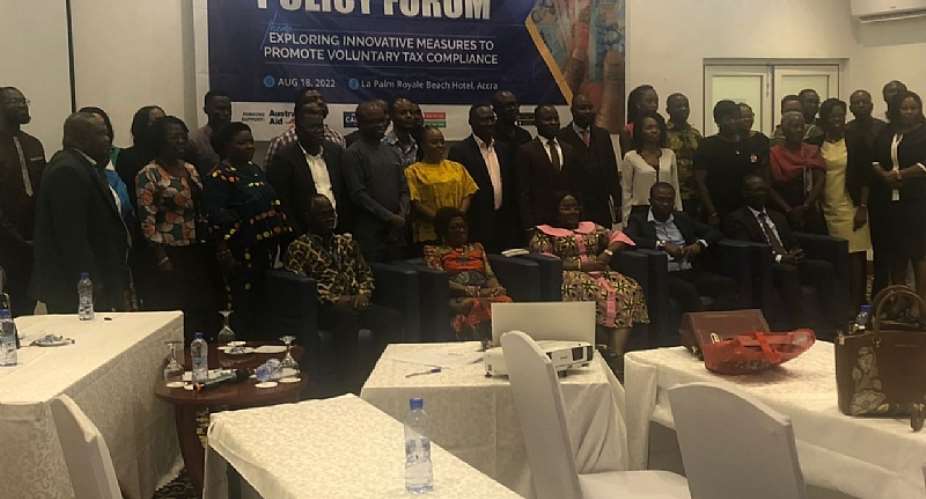Many Ghanaian businesses and other taxpayers are being forced to avoid the payment of taxes because of the current economic hardship on their productivity and profit.
A 2022 study on voluntary tax compliance in Ghana showed that about half of businesses, policymakers and implementers, academics, and Civil Society Organisations (CSOs) were not meeting their tax obligations.
Article 174 of the 1992 Constitution of Ghana has a legal imposition for businesses and individuals to file their returns and pay tax timely and accurately, therefore, defaulting or non-compliance with the tax laws amount to an offence punishable by law.
However, enquiry on reasons that accounted for the non-compliance, 42.1 per cent of the taxpayers said that their non-compliance was mostly because of the “harsh economic conditions and mismanagement of tax revenues.”
Also, 23.9 per cent attributed poor business performance or low profits, while 16.1 per cent said that not benefiting from the taxes they paid forced them not to comply, the Ghana Integrity Initiative (GII) study showed.

Mr Benedict Doh, Finance Manager, GII, who presented the findings at a forum in Accra on Thursday said most of the respondents – 72.6 per cent – were not satisfied with how tax revenues were managed by the Government.
He noted that though the private sector was the backbone of Ghana's economic growth, many businesses complained that the environment was not conducive for their operations.
He called on the Ministry of Finance, the Bank of Ghana (BoG) and the Economic Management Team to take immediate steps to resolve the current exchange rate depreciation, high inflation, and inflated cost of borrowing/interest rate, which were negatively impacting businesses.
Mr Doh also urged the Ghana Revenue Authority (GRA) to intensify its tax education programmes through market broadcasts to reach the businesses in the informal sector.
There should be training workshops, radio, and television programmes for businesses in the formal sector, while the Government ensured fair and equitable distribution of developmental projects across the country.
Dr Alex Ampaabeng, Fiscal Policy Lead, Oxfam Ghana, reiterated the need for public education, noting that there must be informal sector specific approaches to education and sensitisation to help in voluntary tax compliance.
The Tax Specialist also asked the GRA to develop a working relationship with religious leaders and develop clear communication and advocacy measures to increase awareness and voluntary tax compliance.
Mr William Demetia, Director, Areta Solicitors, underscored the need for accountability on the part of the Government, and explained that specifying the exact things that each tax handle would be used for would encourage tax compliance.
Responding to the findings, Mr Kwesi Eghan, Deputy Commissioner for Operations at the GRA, said that the Authority was pursuing a vigorous digitalisation agenda to encourage electronic payment of taxes.
He said a digital platform for the registration of non-resident e-commerce businesses had been adopted to enable GRA to expand its operations, with an electronic invoicing system being introduced from October 1, all to increase tax compliance.
Mr Eghan also said the Authority regularly educated its staff on the Institute's code of ethics to achieve its revenue mobilisation targets, strengthen tax compliance enforcement and fight against corruption.
GNA





 We’ll no longer tolerate your empty, unwarranted attacks – TUC blasts Prof Adei
We’ll no longer tolerate your empty, unwarranted attacks – TUC blasts Prof Adei
 Bawumia donates GHc200,000 to support Madina fire victims
Bawumia donates GHc200,000 to support Madina fire victims
 IMF to disburse US$360million third tranche to Ghana without creditors MoU
IMF to disburse US$360million third tranche to Ghana without creditors MoU
 Truck owner share insights into train collision incident
Truck owner share insights into train collision incident
 Paramount chief of Bassare Traditional Area passes on
Paramount chief of Bassare Traditional Area passes on
 Two teachers in court over alleged illegal possession of BECE papers
Two teachers in court over alleged illegal possession of BECE papers
 Sunyani: Victim allegedly shot by traditional warriors appeals for justice
Sunyani: Victim allegedly shot by traditional warriors appeals for justice
 Mahama vows to scrap teacher licensure exams, review Free SHS policy
Mahama vows to scrap teacher licensure exams, review Free SHS policy
 Government will replace burnt Madina shops with a new three-story, 120-store fac...
Government will replace burnt Madina shops with a new three-story, 120-store fac...
